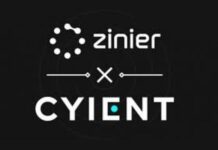The EQUSPACE (Enabling New Quantum Frontiers with Spin Acoustics in Silicon) project has the ambitious goal to ensure a complete silicon-based quantum information system. This four-year endeavor has been awarded 3.2 million euros from the European Innovation Council’s (EIC) Pathfinder Open funding programme, which supports visionary research teams in developing the scientific basis for breakthrough technologies. The funding is part of the Horizon Europe funding programme. The project starts on 1 February 2025 and is led by the University of Jyväskylä.
The funding is highly competitive and is granted to multidisciplinary consortium for early-stage projects that have the potential to create new markets and address global changes. A total of 1110 funding applications were received for EIC Pathfinder Open funding programme, of which only 45 were awarded funding.
“Awarding the coordination responsibilities of international research projects to the University of Jyväskylä shows the high level of our research,” says the Dean of the Faculty of Mathematics and Science of the University of Jyväskylä Mikko Mönkkönen. “I am extremely happy for our University, the faculty, and especially for the research team that received the funding. This funding will significantly strengthen the already strong field of quantum research at our university.”
Expanding the international ecosystem of the quantum industry
The project develops a technology platform that utilizes quantum bits based on impurity atoms implanted in silicon. The focus will be on developing scalable methods for reading these “silicon qubits” by utilizing commercial quantum dots and connecting them to each other using nanomechanical resonators.
“The long-term goal is to enable the use of the qubits in quantum computing and quantum sensing, while creating a Europe-wide ecosystem for the quantum technology platform,” says the Consortium’s Coordinator, Professor Juha Muhonen.
A quantum leap for silicon spin qubits
Although silicon has been the defining material for classical information processing, it is not currently the primary material in quantum information processing. However, silicon spin qubits have already been shown to have excellent single-qubit properties. Despite this, silicon qubits, and especially qubits formed by impurity atoms, are not yet seen as a mainstream platform for quantum computing, mainly because there are no convenient coupling and readout mechanisms for scaling up to a practical level. EQUSPACE aims to meet these challenges and promote the fact that quantum technologies could take advantage of the existing large-scale silicon infrastructure that has been set up to manufacture today’s computer chips.
“The EQUSPACE project provides an interdisciplinary approach to the immediate challenge,” says Muhonen “by bringing together a unique team of leading experts from the fields of spin qubits, optomechanics, and atom-scale modification of silicon.”
The project thus not only aims to make silicon quantum technologies a European strength, but also to develop methods that can modernize the entire quantum industry.
“For example, materials science techniques, such as single-ion implantations and silicon isotope purification, play a big role in the project,” says project manager Dr. Nico Klingner from Helmholtz-Zentrum Dresden-Rossendorf “and through these techniques the project aims to create a scalable and solid platform for all silicon quantum applications.”
A European consortium brings together quantum experts
The EQUSPACE consortium comprises researchers from the University Jyväskylä (JYU) and three research institutes: VTT Technical Research Centre of Finland (VTT), Helmholtz-Zentrum Dresden-Rossendorf e.V. (HZDR) in Germany, and NWO Institute AMOLF (AMOLF) in the Netherlands. In addition, it includes a Finnish start-up company, SemiQon Oy.
“EQUSPACE is a great example of how new innovations can be realized by combining different quantum technologies,” explains Semiqon’s CRO Mika Prunnila. “The project brings together experts from the fields dealing with quantum dots, impurity atom related qubits, optomechanics, and atomic-scale modification of silicon. At the same time, it links together a university, a start-up company as well as research institutes in three different European countries.”
Research to boost Europe’s quantum industry
One of the main goals of the funding is to enable the development in Europe of quantum technologies based on impurity atoms in silicon.
“With this new funding, EQUSPACE establishes a strong research network in Europe based on donor spin qubits, a development that will strengthen Europe’s quantum industry in the long term,” says Muhonen “Nowadays, this platform is primarily being developed in Canada and Australia. And, of course, also China and the U.S. are generally ahead in quantum technologies. Projects like EQUSPACE are critical for Europe to keep pace in today’s global quantum race.”
Further information:
- Professor Juha Muhonen, juha.t.muhonen@jyu.fi, +358401905352
- Dean of the Faculty of Mathematics and Science Mikko Mönkkönen, mikko.monkkonen@jyu.fi, +358504413682
- EIC Pathfinder: https://eic.ec.europa.eu/eic-funding-opportunities/eic-pathfinder_en
- Information about the EIC Pathfinder Open funding programme: https://eic.ec.europa.eu/news/eic-pathfinder-eu138-million-support-bold-ideas-radically-new-technologies-2024-09-05_en
- VTT Technical Research Centre of Finland Ltd.: https://www.vttresearch.com/en
- SemiQon Technologies Ltd.: https://www.semiqon.tech/
- Helmholtz-Zentrum Dresden-Rossendorf e.V.: https://www.hzdr.de/db/Cms?pNid=0
- NWO Institute AMOLF: https://amolf.nl/
Picture caption:
- Picture 1: Professor Juha Muhonen from University of Jyväskylä is the Consortium’s Coordinator of the EQUSPACE.
- Picture 2: The project brings together five partners from three EU countries and brings together experts from the fields of spin qubits, opto-mechanics and atomic silicon modifications to develop a novel silicon-based quantum platform.
- Picture 3: The EIC Pathfinder is one of the instruments of the European Innovation Council Work Programme, part of Horizon Europe.


















